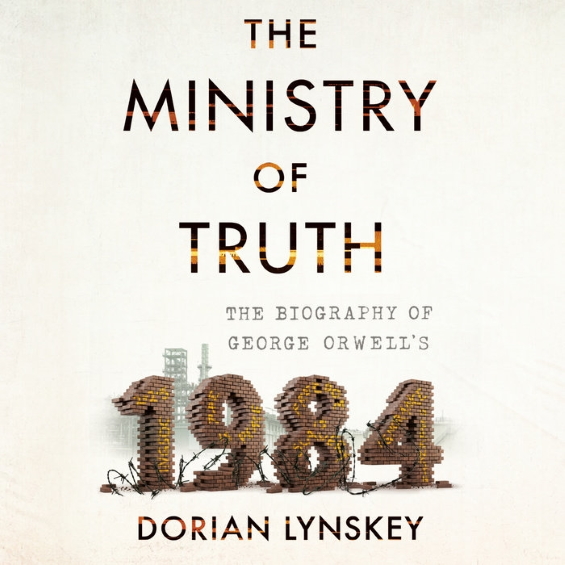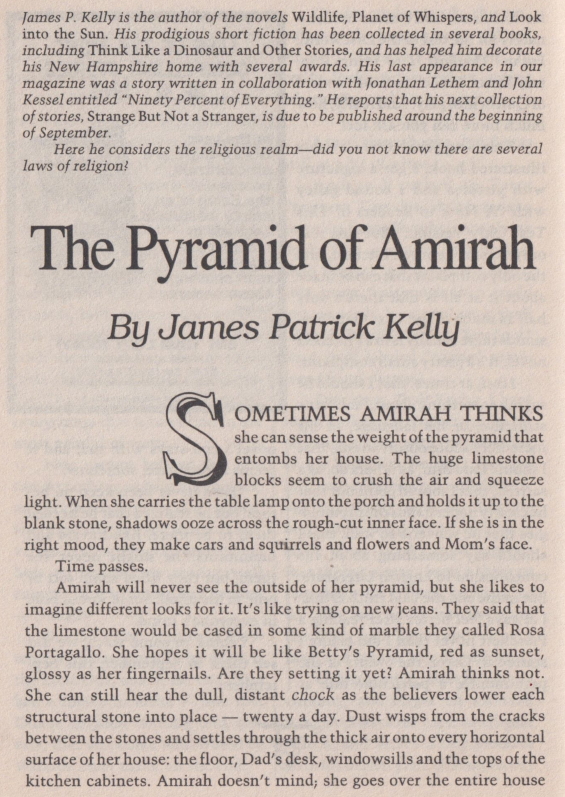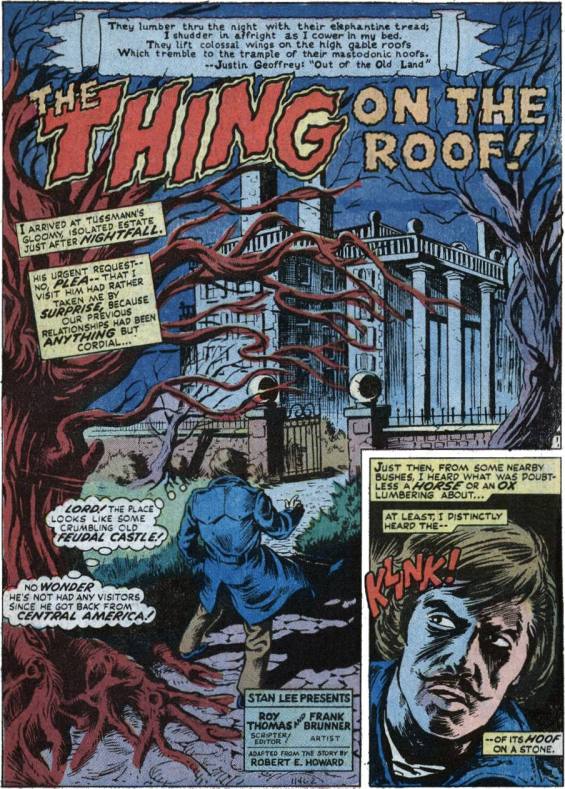The SFFaudio Podcast #867 – The Thing On The Roof by Robert E. Howard (26 minutes) read by Connor Kaye (for Eldritch Archives) AND The Nameless City by H.P. Lovecraft (28 minutes) read by Scott Carpenter for LibriVox, followed by a discussion of both (beginning at 54 minutes). Participants in the discussion include Jesse and Alex (Pulpcovers)
Talked about on today’s show:
2 stories, both about 28 minutes to read aloud, something related to the meta-text, Unspeakable Cults, The Noseless Horror, set in England, why is it set in England, big old creepy houses, British guys, one of the stories today, set in England for no apparent reason, something about this plot, the only time H.P. Lovecraft tried to do Howard: The Quest Of Iranon, Lovecraft heavily influenced by Robert E. Howard, Lovecraft wasn’t interested, he wasn’t commercial, Howard wanted to be a full time writer, have that as your job, died at 30, Cowboy Stories, Action Stories, it’d be good to have some beans, that successful commercial voice, Lovecraft wouldn’t have accepted the editorship of Weird Tales, this is the same plot essentially, a different storytelling technique, The Hound, two lovecraftian characters, an evil art dungeon, Manly Wade Wellman?, [Hounds of Tindalos by Frank Belknap Long], black curtains, very exaggeratory, similar in tone to The Mask Of The Red Death, the plot, an amulet in a graveyard in the Netherlands, the monster in the grave comes and kills him, published twice in Weird Tales, The Fire Of Ashurbanipal, how Howard does buddy buddy, he’s Afghan in Arabia, Howard doing Howard, him doing Lovecraft, point to, teaching students how to write, Character Language Allusion Imagery and Message, nameless like the city, almost no backstory, with the Howard, British jerk, rude to his frenemies, rude to his servants, booklover archaeologist, more academic, a Fall Of The House Of Usher situation, we understand them both, the Lovecraftian scholar, he insulted me years ago, offering an apology, I’ve cleared my name on my own, runs off to South America, three month quest, the Doctor Strange movie, the warnings come after the spell, one is more homebodyish, I want treasure, Belloq and Indiana Jones, rivals, H.G. Wells and Jack London, muscular and fast, the Golden Goblin edition, riddled with typos and odd woodcuts, a parody of Lovecraft at that point, very different from other eldritch tomes, grimoires, less than 100 years old, some dude just wrote this, I studied all the weird forgotten cults then I was brutally murdered, found murdered, assembled, slit his own throat with a razor, The Black Stone is a real story, good painted cover, a purple velvet background, Robert E. Howard’s stories inspired by Lovecraft, these are really fun and interesting, basically the same length, the Lovecraft is much slower, a lot more dreamlike, artificial distinction, his dreamland stories and his cthulhu mythos stories, a guy who goes into the desert, crawls into a cave, horrible spelunking videos, head down in a spot, really horrible, in the darkness and suddenly there’s light, how detailed those murals are, conveyed all that information, he’s got timestamps, how does he convey that?, this incredible detail, a little credulous, depictions of funeral rights, a terrible accident or a war, these guys are immortal, That which is not dead, a lot of poetry in both of these, the text for The Nameless City, loose cable, the poet Justin Geoffrey, smashing babies against the Black Stone, Iram, the city of the Pillars, Sheba by Jack Higgins, a sucker for lost desert cities, lost cities are real, one in Turkey, ones in South America, ones in North America, the deep time of the Earth, an aryan mummy, of a higher race than the native indians, racial stuff, Atlanteans, they’re crocodile/alligator people, a previous species on the Earth, something very important, talking about Atlantis a lot, everything is old, no matter when you pick, all you have to do to push that number back is go out and look, not Mormons in space, the deep history of humans on the earth, there wasn’t always just stone age people, men think about the Roman Empire everyday, some of them are thinking about deep history, some scholar writing a book somewhere, Egypt is very obviously an older civilization, Honduras, Guatemala, got the wrong book, Heinrich Schliemann, cable broken again, not quite as good, finding these things, finding some ancient city in Honduras, didn’t find the inner chamber, how The Hound works, a batwinged creature, maybe that has happened many times, the hoofed thing comes and retrieves it many times, keep closing the door, the comic book adaptation, reading it this time, did you hear something?, a hoof on the roof, it’s Santa Claus!, an ox or a horse in the bushes, the final line of the story, an enormous, hoof, slimy, high pitched, a tentacle, jelly like bulk, Robert E. Howard didn’t quite make it clear, the Marvel comic book adaptation, a little frog hopping ahead of him, a separate from from the one he’s using as the key, crystal frog, a toad which hopped ahead of him, they show it, big splash page, jumping out the window to return to Honduras, interpret, a bad translation, they weren’t worshiping a frog, some god that lives forever, the mummy was its priest, the key was carved to look like a toad, a crystal toad, locked in the inner chamber is this other thing, call it toadish, an alien up there, a moon calf, carving it up like veal, try translating kimchi into english, sauerkraut, you’re gonna get something, getting it second hand, hears some horrible stuff, sees the wreckage, foul unspeakable slime, crushed and flattened, they lumber in the night, colossal wings, the meter and the rhyme, very sing-songy, alluding to something, written for this story, Justin Geoffrey is Robert E. Howard, layers and layers of literary stuff, the distancing technique, there is no medium between us and the narrator, we start right there, I’m right there, protruding uncannily, an ill made grave, as I cower in my bed, hiding under the sheets, elbows and noses, a shallow grave, this Howard thing, different segments of his poetry, The Children Of The Night, tread not where stony deserts hold, very Nameless City, why was he doing that?, is he like Tussman searching for this place?, it feels very dreamlike, there’s no evidence for it being a dream, in a style that’s dreamy, The Doom That Came To Sarnath, the city of Ib, the Nile, a confluence there, the striking change, in the darkness, suddenly he thinks he sees a light, the worlds that he sees described, they are always in light to, always light underground, promised this underground place, The Mound by Zealia Bishop (and H.P. Lovecraft), a collaboration, a mesa in Oklahoma, a headless ghost, dystopian nightmare of centaurs, a Spanish explorer, a nested scroll of what his experience was, slavery biotech, under the earth civilization, bio-tech, attached to opium drips, Xthula Of The Dusk aka The Slithering Shadow, something Howard is all about, even crocodile civilizations, down with these reptile people, some societal and environmental problems, why it is hidden from us, poetry injections, amazingly steep, Thomas More, a reservoir of darkness, moon drugs, the jetty sides as smooth as glass, the seas of death, how’s that supposed to comfort you?, what the mad poet said, couplet, comedic attraction, let’s do this, everyone warned me it was a terrible idea, my skin is coming off, sucked down into, the last 3 paragraphs, the grim brooding desert gods, what abaddon guided me back to life, monstrous colossal, when one cannot sleep, cacodaemoniacal, articulate form, the grave, strangely tongued fiends, the luminous aether of the abyss, a nightmare horde, the crawling reptiles of the Nameless City, the ghoul peopled blackness, great brazen door, how are we getting this story, hinting that he got out?, Lord Dunsany, a club story, pioneered that with a character named Jorkens, Fletcher Pratt, Gavagan’s Bar, Callahan’s Crosstime Saloon, invited Jorkens over for lunch, chased by a lion, went into a cave, how did you escape?, freak out and wreck the place, a silly joke story, the end of The Outsider, the tomb, the castle, over the landscape, the moat now a garden, why is everybody freaking out, the doorway is a mirror, I’m the monster!, now I ride the nightwinds with the ghouls, huh?, where’s the end of the story, the great brazen door, brass that’s been heated and colour distorted, Ex Oblivione, hates his life and wants to live in his dreams, in his dreams he finds a gate in a wall, how to find the key, taking more opium, get the door open, all of light, he finds himself dissolved, going to the realm of the Forms, until the time I’m placed in another vessel, the pre-heaven, reincarnation involves pain and annoyance, a low door, became dead, are we there with him?, a first person recounting of an event, he wrote it on a roll of toilet paper, Ms. Found In A Copper Cylinder, a ghoul peopled blackness, hail the rising sun, satisfied buy why?, balancing these two stories, love vs. like, prefer Thing, Howard more than Lovecraft, a sucker for the Nameless Cults, better with language, evokes so much, workaday, rushed through it, trying to sell it, the guy telling the story is fairly sane, the guy is gone, crazier more elevated language, it’s almost like The Nameless City isn’t a story, an episode of The Twilight Zone, The Fall Of The House Of Usher, a narrative from a perspective, this is all an analogy for our world, more of a Howard thing than a Lovecraft thing, The Slithering Shadow, the lady plugged into the opium, she’s watching youtube, she’s watching twitch, checked out, stagnating and dead, present asleep, it’s not like The Machine Stops by E.M. Forster, almost more of a straight horror story, one of the endings of Re-Animator, they don’t like it, a dream fully detailed out, and then I was trapped there forever, we wake up out of the story, Robert E. Howard is way more explicable and copyable, much more like a spell we go under, very dream like, what can we learn from them, learn about these places, always underground, the conquistadors missed this, natives to torture to death, the more Heinrich Schliemann approach, the Temple of Doom, keep reading the book, bro, he wants treasure, he’s genuinely interested, our guy in The Nameless City, a compulsion, he has a camel, he has some tools, he came here, lived only in myth, the explanation is zero, a potion to save his life as a disease, a character with a personality, the swooning in Robert E. Howard stories, forget about character completely, C.L.A.I.M., real poets and fake poets, the language is just amazing, like a magic spell, each sentence builds the spell, visualize what’s going on, what is the message, read the whole book, don’t go messing in old tombs, a good thing has all of this, just dealing in tropes, the pictures, when you read a poem by Howard, sense data, just look at the titles, stories full of imagery, the colour of Belit’s skin, what the dragon looks like in Red Nails, he’s largely imagery, apparently it’s great, Jabberwocky, about nothing, means nothing, vorpal sword, the sound is really important, sentence patterns, the sounds of things, names, Tussmann, a funny name for an Englishman, Herr Tussmann, makes sense, he’s bad because he’s a German, evil because he’s French, the plot, that was fun, how he cast this magic spell, mesmerized by whatever it is, almost more like poetry itself, a Clark Ashton Smithy spell, story count, bang out stories in a week or two, each of these guys, all really into poetry, they don’t get money for that, got no money, just good will, why you doin it?, they loved poetry, people talking about writing on twitter, using ai to crank out, not for the love of the game, build my brand, that fundamental love of poetry, they don’t read enough, not absorbing this text for the love of the text, I played World Of Warcraft, muscle mommy, Orc City thing, that’s something, doing this wrong, his stories to his poetry, Clark Ashton Smith second tier down, better at poetry maybe, both of these are very good, they work together really well, reading them back to back, done differently, you can see Robert E. Howard put in some work, probably took a week, a lifetime of dream-journaling, one is a story and the other is something else, Howard trying to do something a little Lovecrafty, written a decade, Lovecraft doing Lovecraft, something off about this, this is him making fun of Gothics, the pirate one, The Black Stranger, Black Vulmea’s Vengeance, the people copying Howard, I got an axe to grind, Howard doing an Agatha Christie, Howard is a great writer, so commercial, front of the mind, what are they buying, do we want adventure stories?, boxing stories, whatevers selling this month, I’ll tell you whatever story you want vs. I can’t be any other way than I am, Strange Tales, Argosy, Farnsworth Wright, The Sowers Of The Thunder, get paid $40 for it, one of his best?, is that true, top half?, not top 10, he wrote a lot, and he’s really good at it, Tevis Clyde Smith, a shorter and better story, stocked up, real literature, that sounds like a guy who’s proud of himself, July August 1931, 5 years of writing, he got better as he went along, Tamarlane as a fit subject for Oriental Stories, the best story by far that I ever wrote, judge by any standard, seemed to erudite for the general reader, correctly estimating his audience, the Seabury Quinn lovers, my audience won’t like it, too thin, also etc., no attempt at plot, usual stereotype, he could have had the story for nothing, just to see it in print, mid to late August, to Lovecraft, a berth there, yarns, thin plot and light action, formerly rejected it, in the final letter, March 1932, the roof business and the sowers stuff, quite a few praises, get it into The Souk, The Eyrie, better than everything previous?, late Robert E. Howard, Solomon Kane is before this, Kull precedes Conan, the last recurring character, El Borak, James Allison, Kull is 29, Steve Costigan, 29 and 30, everything is 29 and 30 for him, ludicrous how much he wrote, he wrote so much good stuff, The Statement Of Randolph Carter, The Tomb, when you see Tussmann do you say that’s me!, as a character, so obsessed with this, two lines and then runs off, who does that?, an insane life, skull caved in by a hoof, decaying estate, there’s no explanation, he wants the treasure, doesn’t care about his own reputation or name, the backstory is really interesting, having to had to defend himself, so random attack, the Nameless Cults thing, the fake book as a concept, the weird pirate editions of the books, making fun of Lovecraft, buy the Del Rey not the Lancers, so expurgated, allusion is a major factor, an Aesop’s Fable, no reference to Dambusters, no reference to Akira Kurosawa, the couplet that explains what the moral of it is, one and done and we’re done, the more layer of enfolding, a reminder about a story by Poe, The Oval Portrait, almost is all frame, a guy in Italy, just wounded, breaks them into a castle, food on the table still steaming, the wick is still smoking, they find the castle abandoned, turret bedroom, bandits in the original, surrounded in this round room with paintings, armorial trophies, beside him on the pillow is a book that tells you all about the paintings, a build up for the internal story, a painter who painted a woman to death, drawing the spirit out of her body and putting it in her into the canvas, sets up and ends, why lately abandoned, a rich deep interesting story about art, he talks about being wounded, Tussmann’s eyes blazed, shot in the foot, how did that happen?, sealed up chamber, the opposite of our unnamed narrator, purely by chance, a similar sort of setup, it just so happen, it’s a meta-story, the framing making the layering more interesting, no framing at all, comes to us somehow, storytelling, start as far as possible into the story, cut out all the build up, start with action, Basil Exposition come out to explain some plot point, Constantine (2005) with Keanu Reeves, you have to roll with it, not like Blade III, a tv show out of it, at no point does it slow down for the audience, buckle in, why it doesn’t resonate with a lot of people, Robert E. Howard is very good at knowing what the audience wants, force of nature vs. innate skill and temperament for it, doing it for money, Re-Animator and Lurking Fear, let’s get Hour Of The Dragon scheduled, going to the beach again, the Outer Banks of North Carolina, not on for Hombre by Elmore Leonard, The Assassination Bureau, Ltd. by Jack London, Lord Of Light by Roger Zelazny, nominated for a Nebula, really short stories, The Horses Of Lir, a little later, a movie.

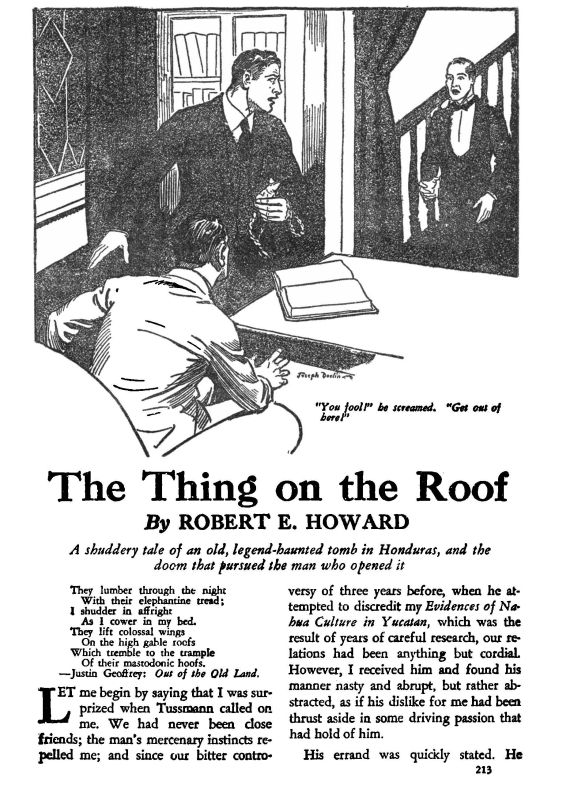
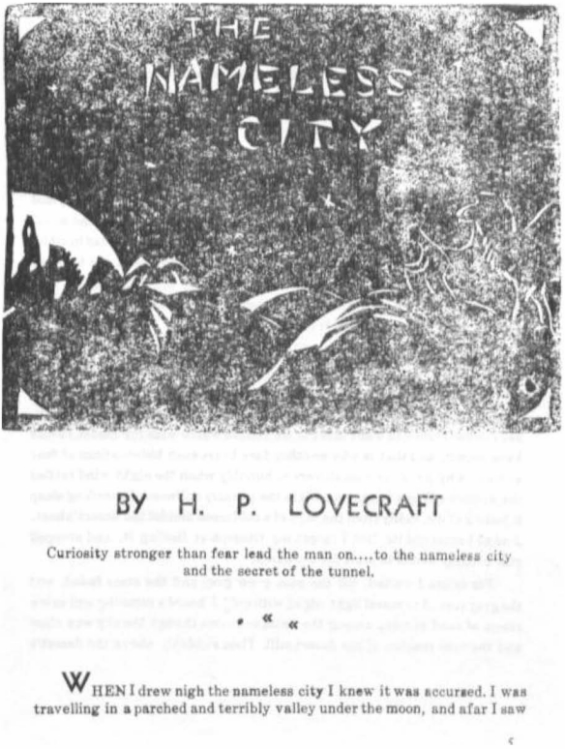
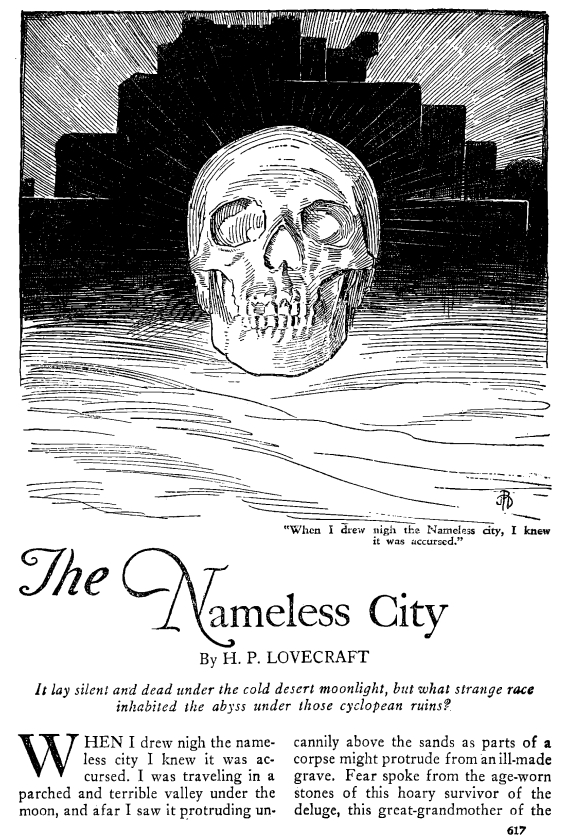
Posted by Jesse Willis



